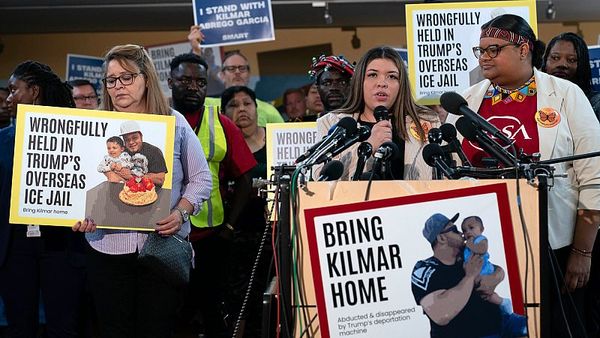
Marie Gracie never met the boy, but his fate changed her life. On 2 September 2015, three-year-old Alan Kurdi washed up, drowned, on a Turkish beach. His family were Syrian refugees, trying to reach Europe. Journalist Nilüfer Demir took a photo. Alan lies face down, in a T-shirt and shorts. His feet are so tiny. His hands are upturned, facing the sky.
“I’m a mother,” says Gracie, an artist from Milton Keynes. “Can you imagine anything worse than your child being in the news like that?” She reached out to her local chapter of Refugees Welcome, set up in the wake of the Syrian war.
“My family became the first buddy family for the first Syrian family that arrived in Milton Keynes,” she says. Gracie helped them with paperwork to get their children into school and set up doctors’ appointments. “Over time I haven’t had to do as much,” Gracie says, “but I still go and see them, and the mum calls me her ‘adopted mum’, because she won’t see her family again.”

Over time, as the families got settled, there was less need for volunteers and Refugees Welcome disbanded, though Gracie stayed friends with her buddy family. But in August last year, US and British forces pulled out of Afghanistan and, within days, the country fell to the Taliban.
Gracie began to hear whispers that Afghan families were arriving in Milton Keynes. A local charity asked for donations of toys for the children. Gracie pulled together some things, but missed the deadline for collection. A few days later, driving through town, she saw a group of people. “I realised instantly they were the refugees,” she says. As luck would have it, she had the toys in the boot, so she pulled up and handed them over.
The refugees were being housed in a hotel. Gracie decided to go and introduce herself. “I went to the hotel and started chatting to people,” she says. “I said, ‘Welcome to England. How are you doing?’”
The stories began to unfold. Many had fled Afghanistan with only the clothes on their backs. A church had found them some clothing, but the families still didn’t have everything they needed. Gracie appointed herself as a voluntary coordinator. She collected details of all 200 people: what they wanted, their shoe and clothing sizes. “I got a detailed picture,” she says. “Mr X needs a pair of size 8 boots; his daughters need three sets of pyjamas.” She added just about everyone she knew to a WhatsApp group, and sent out messages asking for clothes. When the donations started arriving, Gracie turned her front room into a sorting warehouse.
“You can’t just dump a load of stuff on people,” she says, “because it causes rows. When people have had everything taken away from them, they’re desperate to grab on to things.” Instead, Gracie made customised packages for each family. She persuaded a hairdresser to offer free haircuts. She got English textbooks and a driving manual for every family.
Many of the families have been stuck in hotel rooms for months. “They’re really fed up,” she says. “They just want a home, so they can start living. They are in limbo.” Not all the families get on. “Why would they?” Gracie says. “There’s no reason they should like each other.” The children are not in school. “It’s appalling,” she says. “What we’re doing to these people is causing them more stress. They’ve just left their family behind and watched their society fall apart and are getting daily reports of family and friends dying, and we can’t even put their kids in school on a temporary basis.”
“Marie hasn’t just helped me,” says Khushal Saraj, who arrived in the UK with his family. He previously worked for the Afghan ministry of transport. “She’s helped every family here. She’s an amazing person.”
Gracie is dispirited by the general public’s attitude towards refugees. “Attitudes have hardened,” she says. “The appetite for helping other people has lessened.” But her community feels different. “I haven’t found it hard to get people to say they will help,” she says.
Gracie absolutely insists that her Guardian angel treat be something for the children. A local church is hosting a party and the Guardian hires Corina’s Cool Kids Parties as entertainers. Gracie phones me afterwards, buzzing but weary. “Today has been absolutely joyful” she says. The children “were contentedly screaming and jumping around and bouncing,” she says. “The entertainer made balloon hats and balloon animals and did games with the kids. It was so lovely. They all had fun.”
It is the first winter for these children in a strange country. But thanks to Gracie and her fellow volunteers, they had a happy day – the children’s whoops of joy are still ringing in her ears.
Want to nominate someone for Guardian angel? Email us – with their permission – and suggest a treat at guardian.angel@theguardian.com







